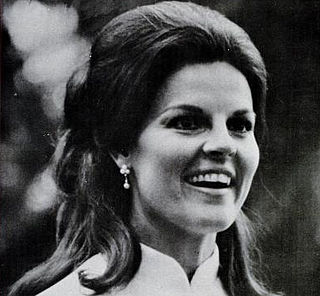
James Chambers, OM, known professionally as Jimmy Cliff, is a Jamaican ska and reggae musician, multi-instrumentalist, singer, and actor. Along with Bunny Wailer he is one of only two living musicians to hold the Order of Merit, the highest honour that can be granted by the Jamaican government for achievements in the arts and sciences.
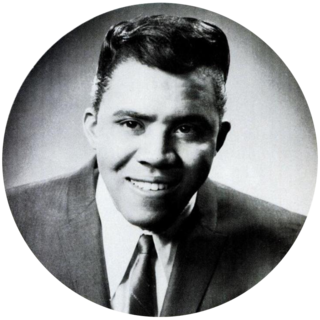
James Lee Ruffin was an American soul singer, and elder brother of David Ruffin of the Temptations. He had several hit records between the 1960s and 1980s, the most successful being the Top 10 hits "What Becomes of the Brokenhearted" and "Hold On ".
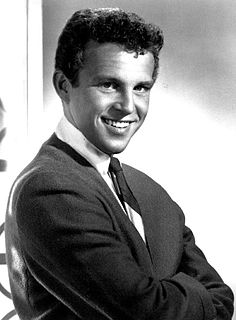
Stanley Robert Vinton, Jr., known professionally as Bobby Vinton, is an American singer and songwriter, who also briefly appeared in films. In pop music circles, he became known as "The Polish Prince", as his music pays tribute to his Polish heritage. Known for his angelic vocals in love songs, his most popular song, "Blue Velvet", reached No.1 on the Billboard Hot 100 in 1963, and made No.2 in the UK in 1990. It also served as inspiration for the film of the same name.

Felice Bryant and Diadorius Boudleaux Bryant were an American husband and wife country music and pop songwriting team. They were best known for songs such as "Rocky Top," "We Could", "Love Hurts", and numerous hits by the Everly Brothers, including "All I Have to Do Is Dream" ,, "Bye Bye Love" and Wake Up Little Susie.

"Ring My Bell" is a 1979 disco song written by Frederick Knight. The song was originally written for then eleven-year-old Stacy Lattisaw, as a teenybopper song about kids talking on the telephone. When Lattisaw signed with a different label, Anita Ward was asked to sing it instead, and it became her only major hit.
"Have I Told You Lately That I Love You?" is a popular song written by Scotty Wiseman and published in 1945. It was the greatest hit of Wiseman and his wife and one of the first country music songs to attract major attention in the pop music field. It's repeating fourth line is "Well darling, I'm telling you now."
The Essex was an American R&B vocal group formed in 1962. They are best known for their 1963 song "Easier Said Than Done".
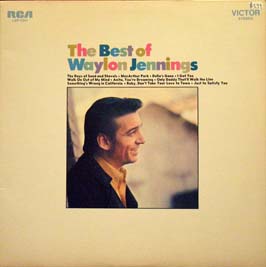
The Best of Waylon Jennings is a 1970 album by Waylon Jennings released on RCA Records.
"Mr. Lonely" is a song co-written and recorded by American singer Bobby Vinton. The song was first released on Vinton's 1962 album Roses Are Red.
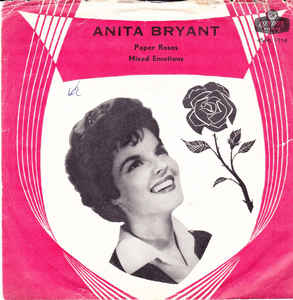
"Paper Roses" is a popular song written and composed by Fred Spielman and Janice Torre. It first was a top five hit in 1960 for Anita Bryant. Marie Osmond recorded it in 1973 and took her version to number one on the US country chart.
Terminal was an American rock band from Mansfield, Texas.

Gone, Gone, Gone is an album by The Everly Brothers, originally released in 1964. It was re-released on CD in 2005 on the Collectors' Choice Music label.

Connie Smith is the debut self-titled studio album by American country music artist, Connie Smith. The album was released in March 1965 on RCA Victor Records and was produced by Bob Ferguson. The album featured Smith's 1964 hit, "Once a Day," which reached #1 on the Hot Country Songs chart. The album itself was also a major success, reaching #1 on the Billboard Magazine Top Country Albums chart.
"Blue Champagne" is a song written by Grady Watts, Jimmy Eaton and Frank L. Ryerson and recorded by American bandleader Jimmy Dorsey with his orchestra, featuring vocals by singer Bob Eberly. It was released by Decca Records in 1941, backed with "All Alone And Lonely". It topped The Billboard's National Best Selling Retail Records chart on the week of September 27, 1941, becoming Dorsey's fifth number-one single of that year.

Samuel Frederick Smith is an English singer-songwriter. He rose to fame in October 2012 when he was featured on Disclosure's breakthrough single "Latch", which peaked at number eleven on the UK Singles Chart. His subsequent feature—on Naughty Boy's "La La La"—earned him his first number one single in May 2013. In December 2013, he was nominated for the 2014 Brit Critics' Choice Award and the BBC's Sound of 2014 poll, both of which he won.
Do You Hear What I Hear? Christmas with Anita Bryant is an album by Anita Bryant released by Columbia Records in 1967.

"Callin' Me When I'm Lonely" is a song recorded by American singer-songwriter Sheryl Crow. It was released as the second single from her 2013 album, Feels Like Home. The song was written by Nashville songwriters Rodney Clawson and Brent Anderson, being one of the two tracks on the album that Crow didn't have a hand in writing.
Dick Flood is a United States singer, songwriter, entertainer, and environmentalist. In the mid-1950s he was part of the duo The Country Lads and made regular appearances on CBS’ The Jimmy Dean Show. In 1959 Flood's cover version of “The Three Bells ” reached number 23 on the US charts. His songs have been recorded by popular artists including Roy Orbison, Anita Bryant, Billy Grammer, Kathy Linden, and The Wilburn Brothers. In 1962, The Wilburn Brothers recorded his song “Trouble’s Back in Town” which peaked at number 4 on the US Country Charts and was named Cashbox Magazine’s “Country Song of the Year.” In 1973 Flood moved to Georgia’s Okefenokee Swamp and became a professional naturalist and environmentalist. In 1981 Flood changed his name to Okefenokee Joe, and in 1989 he hosted and narrated the Emmy award-winning documentary Swampwise on Georgia Public Broadcasting.
"I'll Never Be Free" is a song written by Bennie Benjamin and George Weiss and performed by Kay Starr and Tennessee Ernie Ford. It reached #2 on the U.S. country chart and #3 on the U.S. pop chart in 1950.
